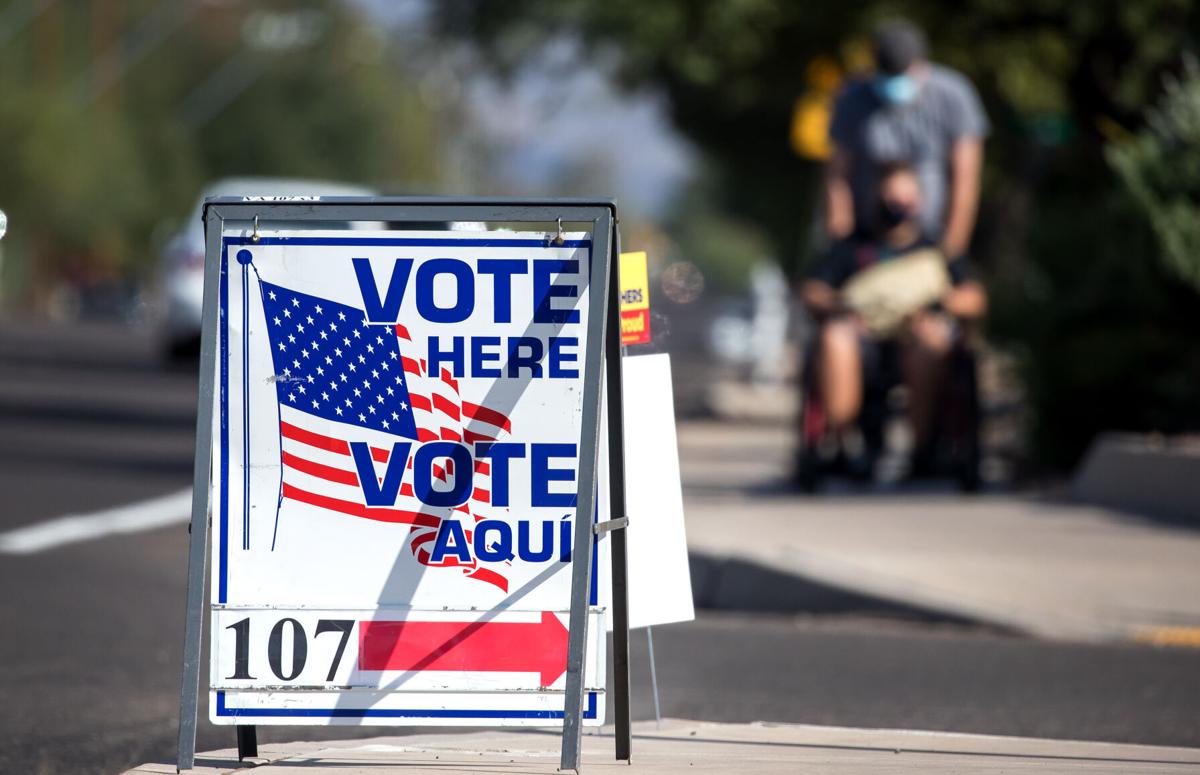PHOENIX — The group that convinced Arizona voters last year to outlaw “dark money” is asking a judge to block a bid by two special interest groups to keep the law from taking effect.
There is nothing unconstitutional about ensuring that voters know who is trying to influence elections, Chanele Reyes, an attorney, told Maricopa County Superior Court Judge Scott McCoy in new legal filings.
Reyes, who represents the Arizona Right to Know Act, pointed out that the state has had financial disclosure laws for decades, requiring organizations to report who has contributed to their political campaigns. And those have been upheld by multiple courts. And those promoting or opposing ballot measures also have financial reporting requirements.
All this does, Reyes said, is pulls back the curtain to ensure that voters know not just the name of some organization listed as the direct source of the dollars but the individuals, organizations and corporations who are really providing the financing.
The measure being challenged, Proposition 211, itself has a more direct way in its text, now part of state law, to describe what it seeks to quash: the practice of laundering political contributions, often through multiple intermediaries, to hide the original source.
Approved by voters in November by a nearly 3-1 margin, the initiative says that any organization that spends more than $50,000 on a statewide race — half that for other contests — has to publicly disclose anyone who has given at least $5,000. It says organizations have to trace the money back to the original source.
Under current law, a donation could be listed as coming from some group with a name like “Arizonans for Arizona.” This ensures that those who have financed that group also must be made public.
Challenging the law is the business-oriented Free Enterprise Club which has taken advantage of the current law to finance campaigns to affect ballot measures, but until now has not had to disclose from whom it is taking donations. It is joined by the Center for Arizona Policy which also has been active in Arizona politics, as well as two individuals, not identified, who said if the law takes effect it will chill their right to donate, something they say is akin to free speech.
Among their arguments is that donors are entitled to privacy. They cite a specific provision in the Arizona Constitution that says an individual’s “private affairs” will not be disturbed.
“The act violates that right by forcing the disclosure of information related to the confidential monetary and in-kind donations to charities engaging in campaign media spending,” according to attorneys for the Goldwater Institute, which is representing them.
Reyes told McCoy that argument is flawed.
“If the act could be characterized as an unconstitutional intrusion into a person’s private affairs, then every campaign finance disclosure law requiring the reporting of contributions would be invalid,” she wrote.
That argument is supported by James Smith, a private attorney representing the Citizens Clean Election Commission which is charged under the initiative with enforcing the provisions.
“The Arizona Constitution required the first Legislature to impose disclosure requirements on contributions to, and expenditures by campaign committees and candidates for public office,” Smith said.
Reyes also said that the law the two groups are challenging is narrowly crafted.
“By targeting only big spenders on Arizona elections and large contributors to those spenders, the act’s burdens are minimal,” she said, specifically citing the fact that anyone who gives $5,000 or less to one of these organizations to affect an election is exempt.
On the other side of the equation, Reyes said, are the public purposes served by shining a public light on the myriad of political committees whose names give voters no idea who really is providing the funds, groups that have until now been protected from actually disclosing for whom they are fronting.
“Voters cannot accurately evaluate campaign advertisement or rhetoric for potential political biases or hidden political agendas if they do not know the true source of funds publicizing the message,” she said.
She also pointed out there is an escape clause of sorts.
The voter-approved law allows anyone who faces a “reasonable probability of serious risk of physical harm” to petition the Clean Elections Commission to have his or her name excluded from disclosure.
Smith said that McCoy, in considering the bid by the challengers to enjoin enforcement of the law, needs to consider the big picture.
“Entering an injunction means thwarting the policy goals of 1.7 million people who supported Prop. 211,” he said. “They concluded that public disclosure about campaign expenditures is a crucial policy for election integrity.”
Nor, said Smith, is there a hardship to those who are challenging the law.
“Every plaintiff remains free to campaign, spend money to influence elections and publish web postings,” he continued. “The harm to the public by blocking this new law outweighs any harms to the plaintiffs.”
The challengers are facing not just the committee that got the ballot measure approves and the Citizens Clean Elections Commission. Lawyers for state Attorney General Kris Mayes have filed legal papers to intervene in the case to defend the voter-approved law.
No date has been set for a hearing.
Corona de Tucson, located in the community of Vail, southeast of Tucson, woke up to snow on Wednesday, Feb. 15.





